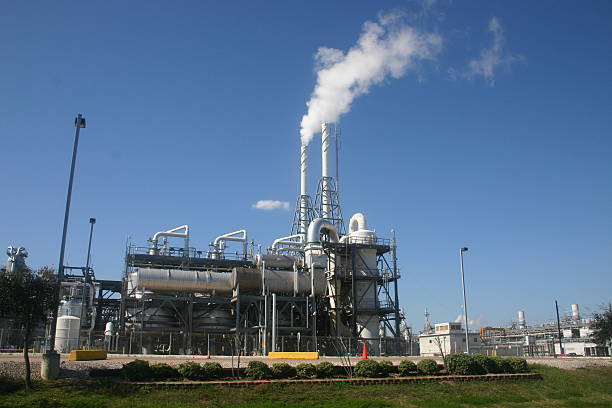
A biocide is a chemical substance or microorganism intended to destroy any harmful, harmless or stop potentially harmful organisms. Biocides can be described as "a variety of poisonous substances used to control organisms that are harmful to human or animal health or can cause harm to manufactured or natural products, including preservatives, insecticides as well as disinfectants and pesticides."
When discussing biocides, it is essential to differentiate between the biocidal active ingredient and the biocidal products. Biocidal active substances are mostly chemical compounds, however microorganisms are also present (e.g. bacteria). Biocidal products contain one or more biocidal active ingredients and other non-active coformulants that guarantee the effectiveness of the final product and the desired pH and viscosity, color and the odor, among other things.
In many commercial, industrial and manufacturing processes, microbiological control plays an important role. Chemical biocides are essential for maintaining water conditions continuously to ensure that the systems are secure maintained, reliable, and operating efficiently. You can obtain more info about chemical substance by browsing biocide company website.
It is possible to achieve this by using carefully chosen IRO Biocide along with dispersants. They are perfect for a variety of process and industrial water treatment activities that necessitate effective microbiological activity control in water.
Biocides can be utilized for many different purposes, including:
1.Bacterial deposits
2.Under slime deposits, bio-corrosion occurs
3. Excessive cooling fan operation could result in energy loss
4.Circulation pumps and inefficient heat exchangers
What are the advantages?
Biocides are harmful to bacteria and mold. They are most effective when the proper IRO Biocide concentration of the substance is used. This will result in quick results in areas where the flow of metalworking fluid is good. Biocides can be used to combat infections caused by bacteria. They are also readily available and easily accessible.
Biocides that are common
1: The element chlorine (sodium hyperchlorite).
Chlorine is one of the most commonly utilized biocide chemical due to its cost-effectiveness and availability. Although it's the most cost-effective alternative however, its oxidative and volatile nature could cause damage to metals in piping systems. When not fed at the right dosage the chemical has been proven to cause corrosion in domestic water cooling towers and piping. Chlorine can also produce NTM (trichloronitromethane), a carcinogenic byproduct.
2 2. Chlorine Dioxide
Chlorine dioxide is a chemical substance molecule that is used for both process and domestic water treatment. Its ability to work in any kind of makeup water make it a popular option. It is able to penetrate both the sessile and planktonic levels of the biofilm. While it is less aggressive than chlorine but its ability to be stable in hot water is not ideal. A generator might be needed to produce the chemical on-site.
3: Stabilized Bromine
Stabilized bromine is used to disinfect cooling towers . It is an excellent option for spas and other environments with warmer water. While it's more expensive than chlorine, bromine is more stable at higher temperatures. It has a milder smell and is not as irritating to the skin. It is dissolved slowly and operates in a larger pH range, which allows you to keep water quality high for longer periods of time.